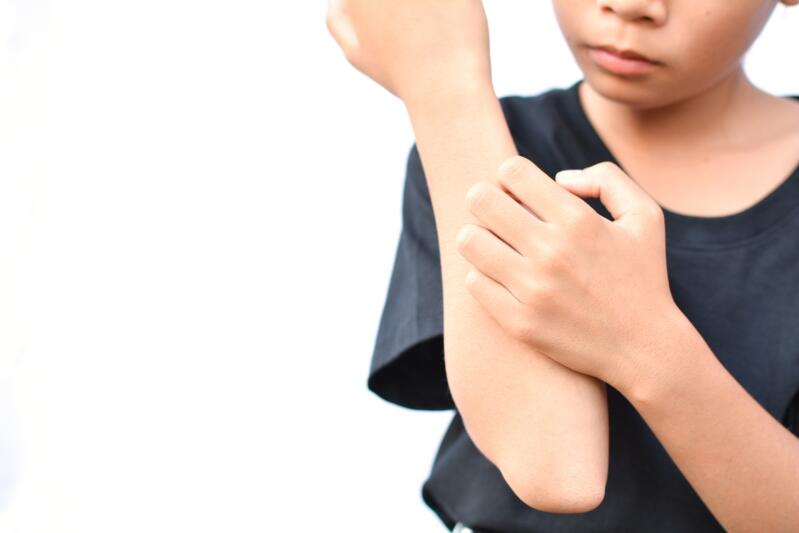-
Your concerns
Our articles to help you gain a better understanding
-
Our solutions
-
Ducray Dermatological laboratories
Our articles to help you gain a better understanding

In this article we review oozing eczema on the one hand and purulent eczema on the other hand. These are forms of eczema with several specificities in terms of symptoms and treatments.
Oozing eczema is part of the normal course of eczema:
These four stages usually follow one another very quickly so that oozing eczema often goes unnoticed.
Oozing eczema is related to other
symptoms, particularly itching. Scratching is often the cause of the rupture of the microvesicles.
Oozing eczema affects children before the age of 2 years. On the cheeks, on the outer side of the limbs, on the stomach: young children often present very red and oozing plaques.
Purulent eczema is a specific oozing eczema in which the eczema plaques change in appearance: they become covered with fluid and then yellowish crusts due to bacterial superinfection. In this case a medical consultation is necessary.
Oozing eczema is not contagious, since it is primarily eczema, a chronic inflammatory skin disease.
On the other hand, purulent eczema is linked to bacterial superinfection of the skin and can therefore be transmitted from one person to another if the lesions are touched. However, the contagiousness decreases as soon as treatment is initiated.
The treatment of oozing eczema is based on the same treatments as atopic eczema, i.e. cortisone creams and emollients. Favor light textures to avoid maceration.
The treatment of purulent eczema is based on topical and/or systemic antiseptics and antibiotics. Cortisone creams are not necessarily discontinued during this period, as they help fight the inflammation of the skin.
Skin prone to atopic eczema, contact eczema, chronic eczema and/or, eyelid eczema
NEWSLETTER
Dermatological expertise
To better understand your skin and hair, discover our exclusive content and innovative care products designed to improve your quality of life..